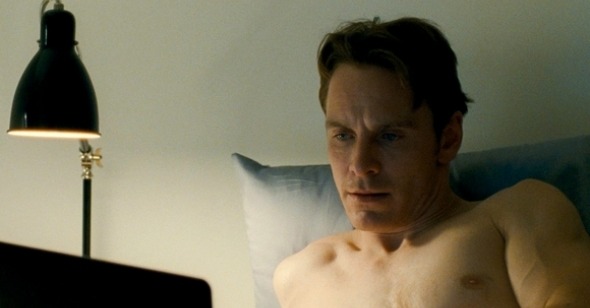"What did they say about me?!"
After a year overstuffed with cinematic bounty like 2011, isn’t it somewhat churlish to spend time and energy meditating on the various failures, idiocies, and lapses in judgment and taste that marred the silver screen over the past twelve months? Why yes, yes it is!
If you knew where to look, the past twelve months brought a batch of phenomenal movies, but we'd much rather have looked away from the following eleven films, all of which were eminently shameful—especially our top pick, which had the most appropriate title of any movie in 2011. Speaking of titles, this marks the first time two films with the same one have been mentioned two years in a row! (Oh, Fincher, you know what they say about lipstick on a pig . . . ) There are surely more stinkers we could name, but the stench emanating off this page is already pretty unbearable.
[Capsules by Julien Allen, Matt Connolly, Eric Hynes, Michael Koresky, Adam Nayman, Jeff Reichert, Damon Smith, Andrew Tracy, Chris Wisniewski, and Farihah Zaman.]
Shame
In Steve McQueen’s Shame, we meet “Brandon” who lives in an “apartment” in “New York City.” He holds down a high-paying “corporate” “job,” has a flaky, unreliable “sister,” some “troubles” in his “past,” and a crippling “addiction” (sex) that haunts his “present.” That all of these details can be easily cordoned off within quotation marks is thanks to McQueen’s lazy, condescending approach to filmmaking, in which simplistic, clichéd abstractions about “modern living” are proffered as viable substitutes for doing the work of truly digging into character, setting, narrative, or theme. We shouldn’t have been surprised—McQueen’s Hunger trafficked in a similar arm’s-length push-pull of repulsion and fascination with his source material. Yet that film had grounding in a real-life figure that kept it from evaporating, and made the rigor of its aesthetic seem a calculated political choice rather than pose. No such luck here. Shame is just another film about the horrid dangers of too much rutting capped with the obligatory tear-stained climax (in both senses). This one is made all the more offensive in that its hero, at the height of his loneliness and degradation, lowers himself to receive a blow-job from a man. It’s obnoxious that McQueen clearly thinks he can get away with passing off such tomfoolery as profound; that he’s gone further and weighed the already heavy film down with the most self-serious molasses-thick score in recent memory (even a habitual button-pusher like John Williams would cringe), is arrogance of the highest order. If nothing else, Shame proves that if you flaunt a flaccid (if admittedly impressive) penis, many film critics will feel forced to consider the work in question with the utmost seriousness. Each new hosannah the film has garnered in the year-end rush only makes one feel the lot of the critic, and humanity at large, has grown all the more hopeless. —JR
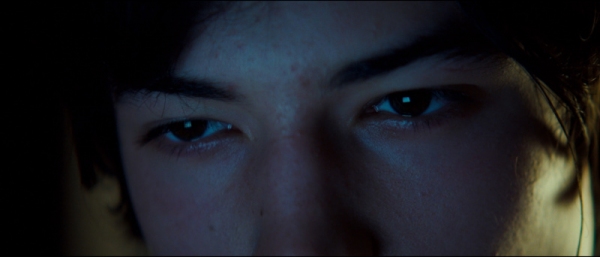
We Need to Talk About Kevin
After dazzling cinephiles with her 1999 feature debut Ratcatcher, an edgy council-flat drama now immortalized in a Criterion Collection edition, and guiding Samantha Morton’s brilliant performance as a grieving young woman in her equally impressive 2002 follow-up Morvern Callar, Scottish filmmaker Lynne Ramsay dropped out of sight for nine years and returned with . . . this? A home-terror exploitation flick gussied up as an art film about maternal ambivalence, We Need to Talk About Kevin is stillborn from the opening sequence, an indulgent Jodorowsky-grade phantasmagoria of writhing bodies and blood-red tomato gore that reminded me mostly of a Woodstock ’94 mosh pit. So much for psychodrama. Tilda Swinton’s haunted expressions of inner torture and endless reaction shots of shock and disgust at her bad-seed progeny’s outrageous behavior play as poorly as John C. Reilly’s hapless sensitive-father pantomime. The jumbled chronological structure didn’t add mystery to the staggered recitation of ostensibly important plot points (Kevin gets an archery set for his birthday: can you spell f-o-r-e-s-h-a-d-o-w-i-n-g?), à la Memento—it simply exhausted my patience. Besides, nothing can justify a film about a perpetrator of high-school mass murder that doesn’t have anything substantive to say, ethically or emotionally, about his predilections for cruelty. Worse still, character development here is nonexistent, relegated to one-dimensional showdowns between mum and son. When the model-handsome teenage killer-to-be is caught wanking in a bathroom by Mother Tilda, he flashes her a long, lecherous grin and continues jerking at a furious clip like a tow-haired satyr. Ooh, what an evil child. Oh, what a dreadful film. —DS
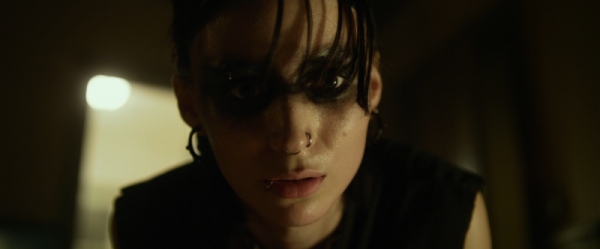
The Girl with the Dragon Tattoo
David Fincher’s directorial palette—cultivated grottiness punched across with aseptic slickness—would have seemed to make him an unlikely candidate for auteurial canonization. Yet Zodiac’s combination of “classical” narrative patience with intimations of ambiguity, unknowability, and unfixed identity have established the director as an ideal blend of the cinephilic-humanist old and the post-postmodernist new. However, where that at once overdetermined and underconceptualized film offered multiple pathways in and out of its intriguingly suggestive textures, Fincher’s adaptation of the omnipresent Stieg Larsson pulp bestseller is forced to trudge along to its source material’s inevitable dead end. Fincher renders Larsson’s Agatha Christie-plus-anal rape scenario with plodding fidelity and the kind of immaculate sheen that quickly induces utter boredom. To critique the exploitative, deck-stacking reprehensibility of the film’s content seems almost moot given its lifeless realization—though that abjuring would place one on the same playing field as the Fincher acolytes who have been strenuously harping on the old form > content saw. We are (should be) long past the time where such archaically auteurist shibboleths can be invoked unquestioningly, however. That Fincher has silk-pursed this swine—absent ingenuity, excitement, or even any malicious glee in its laughably overbaked sex ‘n’ violence set pieces—is no cause for celebration or special pleading. The auteurist train is always harder to stop than it is to start, but there’s no sense in riding with it right off the rails. —AT
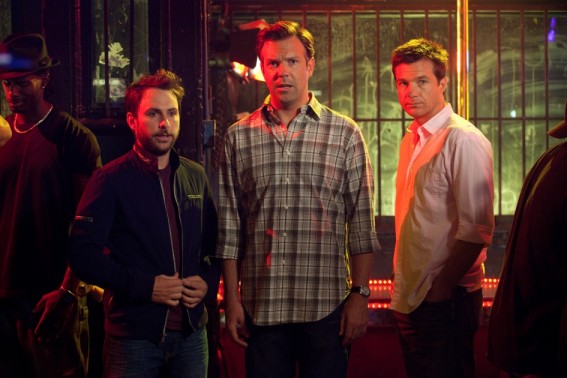
Horrible Bosses
One day we’ll all look back on this era of Hollywood comedy and just marvel at the desperation, monotony, condescension, misogyny, inhumanity, ineptitude, nihilism, infantilism, and staggering scarcity of funny. The dude millennium proceeds unimpeded—despite the best efforts of Kristen Wiig and Tina Fey—and it gets grimmer every year. Witness Horrible Bosses, basically a dude-ified 9 to 5 with three times the villains, one tenth of the charm, and none of the social relevance. Hollywood’s idea of a recession-conscious, pro-labor fable, Horrible Bosses doesn’t even try to justify its protagonists’ homicidal behavior, and thus spends absolutely no time setting us up for what the premise demands: a few too many beers in some sports bar of the movie-hive mind sends the white boys to some African-American bar of the movie-hive mind where outdated racial stereotypes are revived and tediously misbegotten plans are hatched. Despite Jason Bateman’s superior comedic timing, this is a mostly mirthless affair. Jason Sudeikis continues to squander his SNL-honed versatility on curdled carousers (2010’s Going the Distance, this year’s equally execrable Hall Pass, and coming in 2012, Jay Roach’s Dog Fight); rising nuisance Charlie Day delivers dialogue like a goose on helium; Kevin Spacey phones it in as another white-collar pariah; and Colin Farrell’s ugly-up routine as a coke-fiend with a comb-over is mercifully brief (as in edited away). This leaves us with Jennifer Aniston’s horny dentist with the unlikely hots for assistant Day. In a year of impressively regressive misogyny (see Winona Ryder’s demonized adulterer in The Dilemma, or Rooney Mara’s cinematographically showcased derriere, mid-rape, in The Girl with the Dragon Tattoo), Horrible Bosses stood tall. Never mind that Aniston’s sexual aggression doesn’t resemble anything like human behavior. Never mind Day’s implausibly unwavering revulsion. Never mind the pathetic, titillating wish fulfillment of the gender inversion. And never mind that Spacey’s and Farrell’s prove to be truly evil characters. When it’s time for a grand finale, it’s Aniston that gets an elaborate comeuppance, punished not for being improper, but for enjoying rare sexual power, and, god forbid, getting turned on. The film’s final words say all you need to know: crazy bitch. —EH

Drive
Even its most ardent, smartest admirers seemed to have only one thing to fall back on when praising it: it’s just so cool. In fact, nearly all of the words I’ve read used to positively describe Nicolas Winding Refn’s feeble genre exercise are approximations of that same alleged coolness: “stylish,” “sleek,” “moody,” “seductive.” Its crazy “80s” texture was often noted but rarely justified. We’ve all succumbed to basic speechlessness in the face of this type of film, whose surface delights give us a shot of pure movie love that can perhaps ultimately be attributed to personal aesthetic taste. For this writer, for instance, such “stylists” as Brian De Palma and Quentin Tarantino supply the goods. But with their examples of vividly realized pop pastiche, those directors want their audiences to feel the same pleasure they felt from their sources. Watching Drive, I only got the sense that Refn wanted me to feel pain. Apart from its glistening, impeccably edited opening five minutes—the film’s only real sequence of auto-erotica, despite the alluring title—Drive trades on an unappealing mix of stoicism and sadism all in the service of cinema’s umpteenth interrogation of action-hero masculinity. As the film’s central hollow man (“I just drive”), Ryan Gosling is only as expressive as his toothpick, while as his dishrag love interest, Carey Mulligan is less expressive than said toothpick (do not forget, this is the woman he is willing to murder and die for). To compensate for all this suffocating deadpan, Refn punctuates his film with occasional slow-motion flourishes meant to lend operatic insta-grandeur, but which come across mostly as desperate, senseless interludes, and the occasional garish, gratuitous gross-out, including one scene in which Gosling’s booted foot stomps a henchman’s head until it cracks open like an overripe melon. There’s no grace or innovation to any of the violence, just shock effects. FYI, Drive lovers: it’s not that I dislike Drive simply for being “style over substance.” It’s that I hated the substance of its style. And I had an absolutely terrible time watching it. —MK
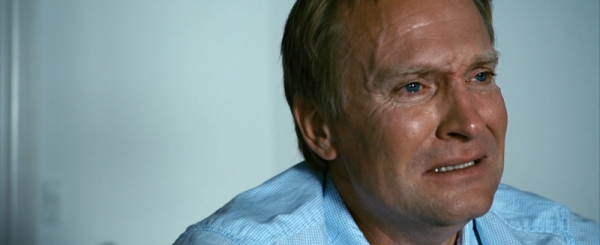
In a Better World
Like its ever-so-guilty white liberal protagonists, Susanne Bier’s parable smugly lectures the viewer on the complexities of Our Contemporary Moment, even as it reduces the world’s actual ethical density to paper-thin caricatures and trite moral tableaux. The film shuttles back and forth between a rural Denmark town and a Kenyan refugee camp, linking the travails of two middle-class European families with those of displaced, poverty-choked Africans through Anton (Mikael Persbrandt), a Danish doctor-without-borders and beleaguered father. The average person might assume that the problems within these two milieus might be pretty, you know, different. Bier doesn’t blink as she places them on some globalized spectrum of pain—a bone-headed flattening of difference ripped right out of the Crash/Babel middlebrow pandering playbook. (In fairness, it worked like a charm. Congrats on that best foreign-language film Oscar, Susanne!) Not that the film extends this spirit of we-are-the-world camaraderie to the actual issues it claims to boldly address. Rather than dealing with the realities of economic disparity and regional violence, In a Better World conjures up boogeymen to test the tolerance of its bourgeois characters—and, presumably, its bourgeois audience. The working-class gets reduced by a loutish bore of a car mechanic. A leering warlord who slashes the stomachs of pregnant women becomes a stand-in for the effects of systemic African poverty. Bier seems to think these cardboard cutouts comprise a comment on the universal nature of cruelty, but her galling juxtapositions of First World privilege and Third World deprivation really reveal the profoundly blinkered nature of her project. One can surely name more consistently bad films released in 2011, but few movies can top the apexes of offense found here. —MC

Sarah’s Key
Of all the ways of presenting a Holocaust story, the frightfully well-to-do novelist Tatiana de Rosnay, born into Russian-French-British aristo-academia in Neuilly-sur-Seine—kind of the Parisian Scarsdale, New York—hit upon juxtaposing the horrors of the Jewish rafle of 1942 with the marital problems of a present-day journalist who’d quite like a baby but whose husband is married to his work. Happily for film lovers, Sarah’s Key is disqualified from any film adaptation until the end of time on the grounds of taste alone. Unless . . . oh, no.
In Gilles Paquet-Brenner’s movie version, Kristin Scott Thomas (who’s literally never been worse) plays Julia, who learns of her father-in-law’s terrible secret concerning some previous occupants of her bijou flat in the Marais, which emotionally connects her to Sarah, a French-Jewish child in the 1940s. The film jumps back and forth from sequences such as the Velodrome d’Hiver round-up (lovingly shot in distressed colors like the best atrocity porn) to those set in a modern-day magazine office where KST, in full Basil Exposition mode, is having to explain to a group of apparently qualified journalists that back then, the French authorities were responsible for some pretty heavy shit as well. Sarah’s terrifying escape and heroic journey across France are later crosscut with devastating scenes of KST’s husband looking at his Blackberry at the dinner table when they’re supposed to be out on a date. After about 90 minutes of this, the film, perhaps conscious of its own inexorable moribundity, throws in the towel (Sarah, a mute, damaged soul, abruptly commits suicide having testified nothing; Aidan Quinn appears as Sarah’s grown son who’ll do nicely when KST’s divorced; half a reel is wasted on a pointless trip to Italy), and the whole meretricious farrago ends in a blaze of putrefying sentimentality. Sarah’s story on its own would have made passable television. But of course, what happened all those years ago isn’t sufficient for us to really relate, is it? As for its celebrated star, she could have signed up for Me Love You Long Time 2: Me So Horny and come out in credit next to this résumé-staining stinker. — JA

My Week with Marilyn
[INT. STUDY— AFTERNOON]
A young critic sits in front of a typewriter.
[DISSOLVE TO EXT.]
The critic purchases a movie ticket.
[VOICEOVER:]
I remember it so clearly. It was the winter of 2011, and I—then still a silly, naive boy with unlimited potential, free to do anything, the future stretched out before me—had a notion: I would off to the pictures! So I went to My Week with Marilyn. And how this experience transformed me! How was I to know that Marilyn—hilarious, sexy Marilyn—was in reality sad, fragile Marilyn? How could I contain myself at the revelation that she had problems with pills and alcohol? Who might have guessed that Judi Dench could play an imperious British actress who conceals a heart of gold behind her tough exterior? Who was so inspired to cast our preeminent British actor-director with a special affection for Shakespeare, Kenneth Branagh, as that legendary British actor-director with a special affection for Shakespeare, Sir Laurence Olivier? And who knew that this Vivien Leigh person (apparently an actress of some repute!) was a dead ringer for Julia Ormond (who actually looks absolutely nothing like Vivien Leigh)? Here, finally, was a work of art concerned with the search for truth and meaning, not some silly middlebrow awards vehicle for a dues-paid actress ready for her Oscar moment—a film that has the courage to look at the ugly face of celebrity (ugly), the pain of addiction (painful), and the good that can come out of an awkward twentysomething young man’s encounter with a depressed addict sexpot celebrity (manhood!). Philistines might call it lazy, pedestrian, dull, superficial, paint-by-numbers, obvious, or dreadfully boring, but there is no doubt that Ray Walk the Line La Vie en Rose My Week with Marilyn will be appreciated, discussed, and debated . . . until the end of this sentence. —CW

No Strings Attached / Friends with Benefits
These intended-as-subversive twin rom-coms—the first starring Ashton Kutcher and Natalie Portman, the second Justin Timberlake and Mila Kunis—were equal prime offenders in 2011. Not because both films were vaguely limp and formulaic, although they were. Not because they relied on stale setups and cheap humor, although they did. No, such sadly commonplace but ultimately minor transgressions pale in comparison to this duos’ dirty trick of pretending to be saucy celebrations of liberated modern romance and sexual mores (introducing characters who prefer sex sans the baggage of relationships), then not only pushing the status quo but also asserting that anybody who chooses not to be a in a monogamous long-term relationship must be in some way emotionally damaged. In other words, if you desire any of the “benefits” the films happily glorified in their wild-romp style marketing campaigns, then, zing, you are about to be lectured on what a soulless, impaired degenerate you are. It was extremely discomfiting being first bored with, then deceived by, and finally preached at by the likes of Timberlake and Kunis, whose recognized charms and warmish pairing couldn’t save Friends with Benefits—let alone the same treatment by Kutcher and Portman, whose total lack of chemistry couldn’t be aided by supporting players Mindy Kaling, Greta Gerwig, and even Ludacris, all criminally underused. [On a separate note: Dear “Tommy” (Woody Harrelson) in Friends with Beneftis, Similar to your film’s sexual politics, your one-note joke of a character, centered around how crazy it is that a gay man could love sports, is the opposite of progressive. Furthermore, as a Bangladeshi, I really didn’t appreciate your referring to my country as a rapidly sinking shit-hole that makes the rest of the world feel better about itself. Love, but No Strings Attached, Farihah.] —FZ

Sleeping Beauty
The first image of Julia Leigh’s Sleeping Beauty is of a character patiently waiting while something is shoved down her throat: sometimes, it’s nice when filmmakers review their work for you. Extravagantly praised after its Cannes bow, Julia Leigh’s debut feature is admittedly one of the year’s most ostentatiously “accomplished” films. In shot after chilly, meticulously arranged shot, the Australian novelist-turned-filmmaker stakes a claim to the clinical-minimalist throne occupied by Michael Haneke, who is invoked not only in Leigh’s static compositions but also in the use of surveillance footage as a means of accessing the main character’s troubled unconscious. That’s because for much of the film, Lucy (Emily Browning) is quite literally unconscious: she’s a grad-student-turned-underground-sex-worker whose new bosses pay her well to be drugged and molested by an array of male clients. The metaphor here is hard to miss—women reduced to oblivious sex objects—but Leigh’s decision to make Lucy unreadable when she’s wide-awake is less a case of form meeting content than an artist drawing a blank and calling it portraiture. Like fellow art-monger Steve McQueen, Leigh is making a show of prodding taboos, but the only thing that’s really at stake (in Shame, as well) is our recognizance of the virtuoso technique being used to push the Themes across. And Themes are all you get here: absent a single plausible dramatic detail (Lucy dresses awfully well for a broke girl) or interpersonal exchange (pity the poor actor playing her platonic, alcoholic pal “Birdman”), Sleeping Beauty feels like nothing more than the sum of its considerable pretensions. The only honest comparison between this vacuum-packed nothing and the likes of Buñuel and Breillat is that it’s shot on film. —AN

The Iron Lady
For all those who have wondered what the director of Mamma Mia (the most inept big-screen musical of the past thirty years—and yes, that takes into account Nine) and the cowriter of Shame (see above) might have to say about Margaret Thatcher, here comes The Iron Lady. And apparently, the answer is nothing. No, really: Nothing. According to this alleged biopic of England’s controversial prime minister—a figure simultaneously despised and beloved, whose record is as considered a blemish on its nation’s recent history as much as it’s honored by others as the legacy of a trailblazer—Thatcher was . . . well, she was . . . a woman. Who looks a bit like Meryl Streep in vulcanized rubber. Director Phyllida Lloyd and writer Abi Morgan are so focused on Thatcher as Icon that such details as her open warfare on trade unions and her escalation of the conflict in the Falklands are framed as uncomplicatedly triumphant assertions of her authority; her remarkable intelligence is only important when placed in opposition to men; and more complicated matters—you know, insignificant details like policy and politics—are elided completely. Lloyd doesn’t seem at all to understand the power of the cinematic image (thanks to composition, music, and cutting, my audience was cheering on Streep’s every command, regardless of context or consequence). There’s nothing to hold on to in The Iron Lady—Thatcher comes across as opaque in her needs and desires as Albert Nobbs. It appears someone in the editing room also saw there was nothing to work with, as a majority of the final film consists of footage of Streep as the present-day, Alzheimer’s-stricken octogenarian Thatcher, bumbling around her house, buttering toast, drinking tea, and conversing with the ghost of her dead husband (Jim Broadbent, who should have delivered his whole performance from behind a white sheet). The effect is of making a once powerful woman into a simpering, doddering bag of bones. Unfortunately these scenes become the film’s only thematically acute ones, since it seems to suffer from its own version of memory loss. —MK
